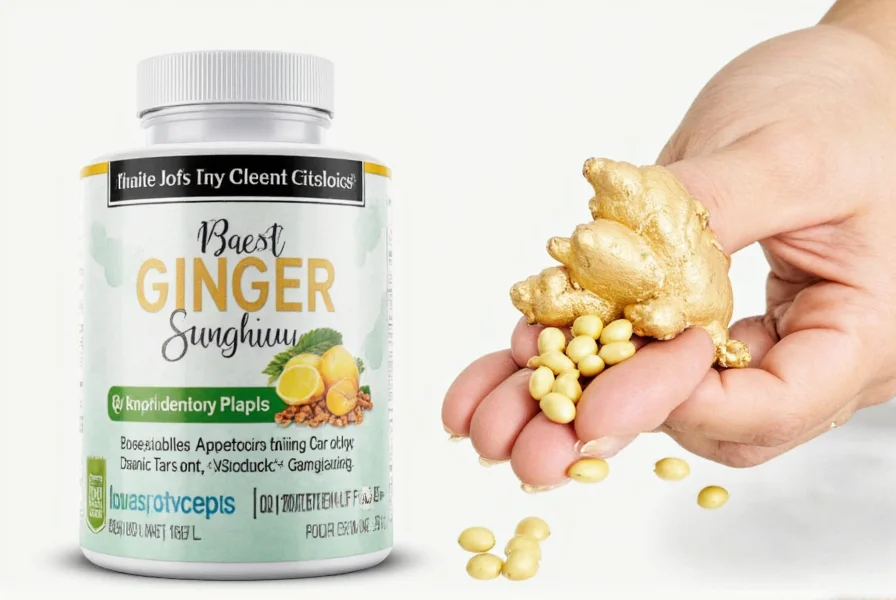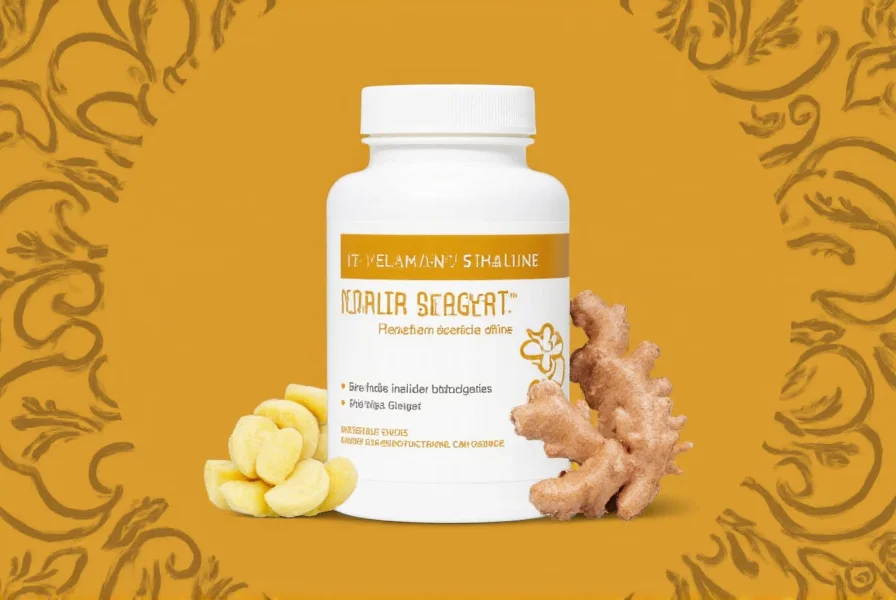Choosing the right ginger supplement requires understanding what makes certain formulations more effective than others. Unlike fresh ginger root, supplements offer concentrated doses of active compounds like gingerols and shogaols, which provide the health benefits people seek. However, not all supplements deliver what they promise, with studies showing significant variation in actual gingerol content compared to label claims.
Understanding Ginger's Active Compounds
Ginger's therapeutic effects come primarily from gingerols and shogaols. Gingerols are the predominant compounds in fresh ginger, while shogaols form when ginger is dried or heated. Research indicates these compounds work through multiple mechanisms:
- Gingerols inhibit inflammatory pathways (COX-2 and 5-LOX enzymes)
- Shogaols demonstrate stronger anti-nausea effects in clinical studies
- Both compounds enhance gastric motility and reduce intestinal inflammation
When evaluating best ginger supplement for nausea options, look for products specifying both gingerol and shogaol percentages. Supplements standardized to 5% gingerols typically contain 25-50mg of these active compounds per 500mg dose.

Key Factors in Ginger Supplement Selection
Not all ginger supplements deliver equal benefits. Consider these evidence-based factors when making your selection:
| Factor | What to Look For | Why It Matters |
|---|---|---|
| Standardization | Minimum 5% gingerols | Ensures consistent active compound levels; non-standardized products vary widely in potency |
| Dosage | 250-500mg per serving | Clinical studies show effectiveness within this range for most applications |
| Formulation Type | Extract vs powder vs whole root | Extracts provide concentrated benefits; powders offer whole-spectrum compounds |
| Third-Party Testing | USP, NSF, or ConsumerLab verification | Confirms label accuracy and absence of contaminants |
Ginger Root Extract vs Powder: What Research Shows
When considering ginger root extract vs powder, research indicates important differences. A 2022 review in Nutrients compared bioavailability between forms:
- Standardized extracts provide consistent gingerol concentrations (typically 5-10%) but may lack other beneficial compounds found in whole ginger
- Whole root powder contains the full spectrum of ginger compounds but requires higher doses (1000-2000mg) to achieve therapeutic effects
- Liposomal formulations show 30-40% higher absorption in recent clinical trials
For specific conditions, certain forms work better. Best ginger supplement for motion sickness typically contains both gingerols and shogaols, as shogaols demonstrate faster absorption. Digestive health applications may benefit more from whole root powder's fiber content.
Evidence-Based Benefits and Realistic Expectations
Understanding what ginger supplements can realistically deliver prevents disappointment. Research supports several applications:
Nausea and Motion Sickness
Multiple studies, including a 2023 meta-analysis in Travel Medicine and Infectious Disease, confirm ginger's effectiveness for nausea relief. The most effective ginger supplement dosage recommendations for nausea range from 250-1000mg taken 30-60 minutes before potential triggers.
Inflammation Reduction
Research shows ginger's anti-inflammatory effects are dose-dependent. A 2021 study in Arthritis found 500mg of standardized ginger extract (5% gingerols) twice daily significantly reduced osteoarthritis pain after 12 weeks. However, effects are more modest than pharmaceutical NSAIDs.
Digestive Health
Ginger accelerates gastric emptying by 25-30% according to research in Neurogastroenterology & Motility. For digestive support, look for supplements containing both gingerols and the full spectrum of ginger compounds.
Safety Considerations and Potential Interactions
While generally safe, ginger supplements require caution in certain situations:
- Blood thinners: Ginger may enhance effects of warfarin and other anticoagulants
- Diabetes medications: Ginger can lower blood sugar, potentially causing hypoglycemia
- Gallstones: May increase bile production, worsening symptoms
- Pregnancy: Consult physician; high doses may affect fetal development
The ginger supplement dosage recommendations for most adults range from 250-500mg twice daily. Higher doses (over 2000mg daily) may cause heartburn, diarrhea, or mouth irritation in sensitive individuals.
Evaluating Supplement Quality: What to Check
When researching what to look for in ginger supplements, examine these critical elements:
- Standardization statement: "Standardized to X% gingerols" indicates measured active compounds
- Third-party verification seals: USP, NSF, or ConsumerLab confirm quality claims
- Full ingredient list: Avoid supplements with unnecessary fillers or binders
- Manufacturing date: Ginger compounds degrade over time; fresher products maintain potency
- Extraction method: CO2 extraction preserves more active compounds than solvent-based methods
Be wary of products making exaggerated claims like "miracle cure" or "scientifically proven to cure" specific diseases. Legitimate supplements will reference general health benefits supported by research, not disease treatment claims.
Practical Usage Guidelines
Maximize your ginger supplement's effectiveness with these evidence-based tips:
- Take with food to minimize potential stomach irritation
- For nausea prevention, take 30-60 minutes before expected triggers
- Store in a cool, dark place to preserve gingerol content
- Allow 4-6 weeks for anti-inflammatory effects to become noticeable
- Rotate between extract and whole root powder every few months for broader benefits
Remember that supplements work best as part of a comprehensive approach. Combine ginger supplement benefits research-backed usage with other healthy practices for optimal results.











 浙公网安备
33010002000092号
浙公网安备
33010002000092号 浙B2-20120091-4
浙B2-20120091-4